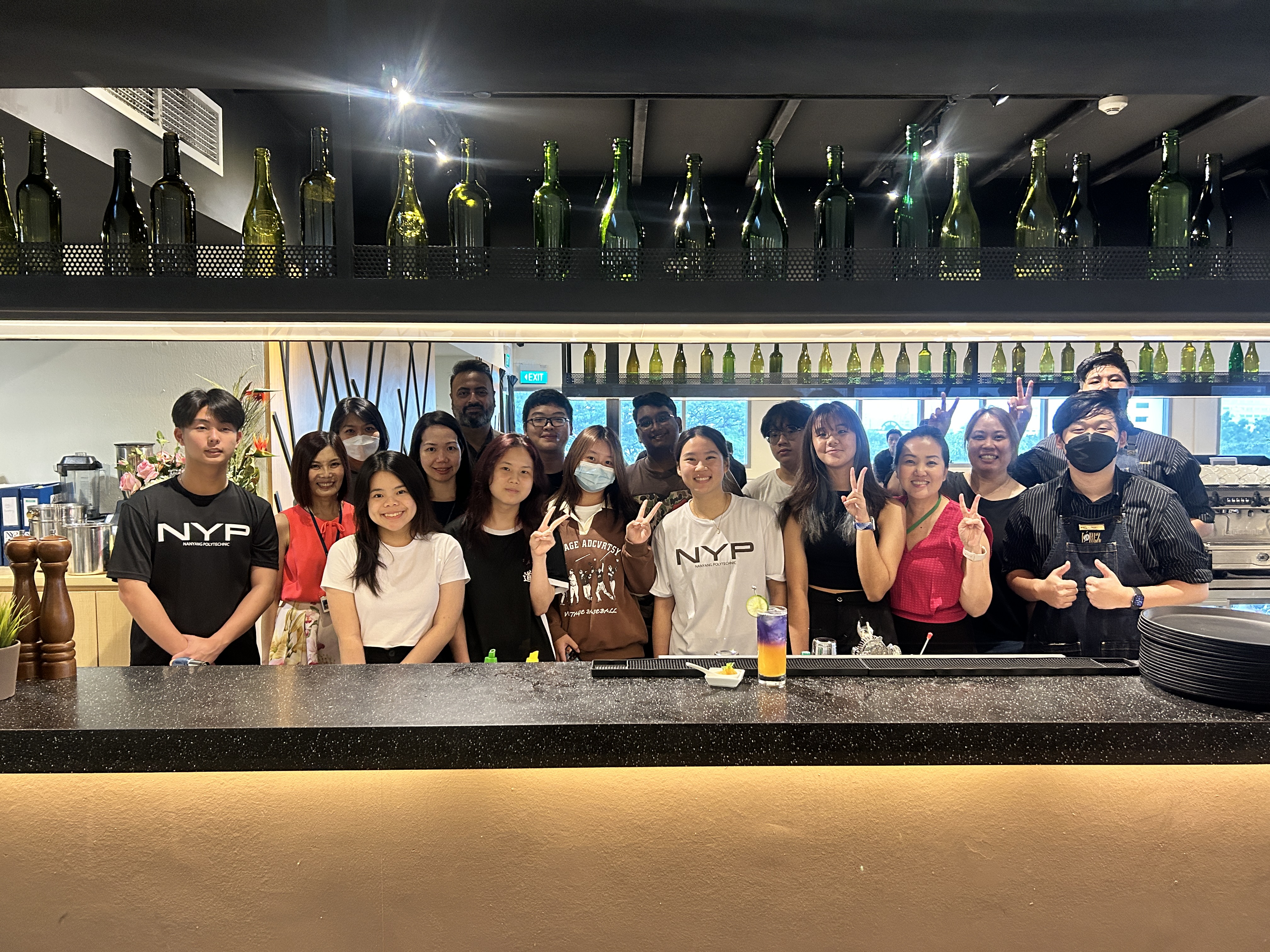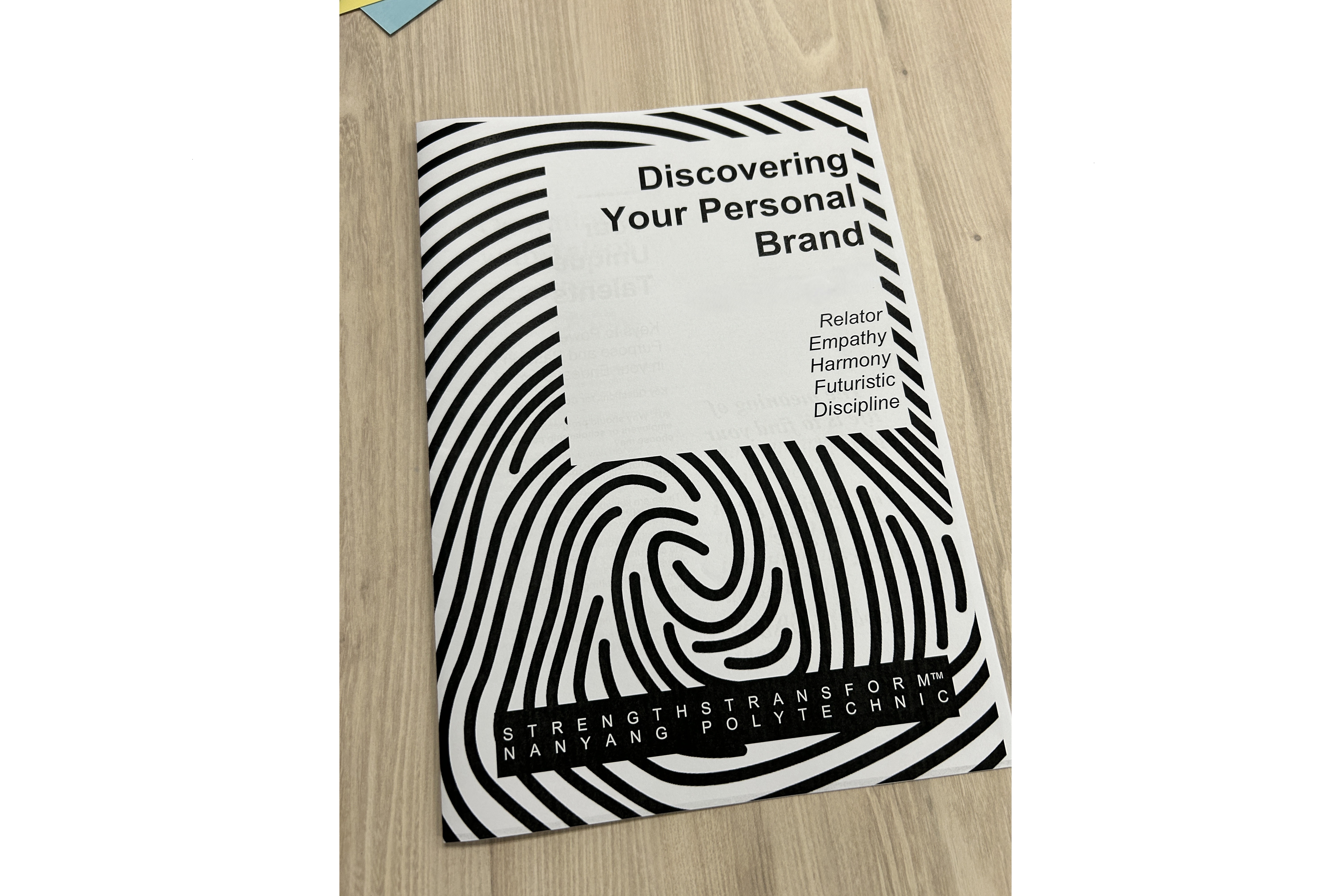Year 1 Semester 1
You will take a total of 2 elective GSMs in Year 1. You will have a wide range of elective GSMs to choose from. Please note that the modules offered are subject to change each semester.
Find your fit
All in ONE semester! Build your business basics, explore your passions through hands-on workshops, learning journeys, and industry networking – then choose your diploma.
1-to-1 support to power your dreams
Our Education & Career Guidance programme helps you find the business course that aligns with your aspirations and passion.
Go on overseas adventures
Travel across ASEAN, China and India to expand your global horizons! Immerse in new cultures, gain real-world experience, and make connections to level up your future.
You will emerge from this core programme:
Explore diverse business disciplines. At the end of your first semester, you will progress into one of these business diploma programmes:
The Common Business Programme consists of:
This course adopts the new Professional Competency Model
You will take a total of 2 elective GSMs in Year 1. You will have a wide range of elective GSMs to choose from. Please note that the modules offered are subject to change each semester.
You will take a total of 2 elective GSMs in Year 1. You will have a wide range of elective GSMs to choose from. Please note that the modules offered are subject to change each semester.
Step out of the classroom and explore the dynamic world of business. Explore diverse industries through immersive learning journeys at top organisations like the Monetary Authority of Singapore, The Institute of Singapore Chartered Accountants, Hilton Singapore Orchard, VUE Restaurant, and many more. Discover your passion and carve your path to a successful business career.

CBP learners at VUE Restaurant – an exclusive industry visit to explore the art of kitchen and restaurant operations, including a mocktail tasting experience.
Gain real-world perspectives through our industry insight sessions. Hear from experts from diverse business fields, as they share career tips, the skillsets and traits that hiring managers seek, as well as key industry trends and their valuable experiences. Get your questions answered, network with professionals, and gain practical insights into the business world.
Industry guest speaker by DB Schenker, a leading global logistics services provider
Dive into our Taster Workshops at the flagship CBP Diploma Roadshow event and SBM's Teaching Enterprise Project Centers. These workshops offer hands-on experiences in real-world business skills, from crafting the perfect mocktail and creating coffee art to designing impactful social media content. Each session brings industry skills to life, empowering you to make well-informed choices when choosing your preferred business diploma.

Interactive Mocktail-Making Experience at L'Rez Training Restaurant
Receive one-to-one support with our tailored Education & Career Guidance programme. Discover your unique strengths in a profiling workshop, customised specifically for NYP’s CBP students. Affirm your potential as our career coaches guide you in identifying the most suitable business programmes to pursue. You will also explore ways to build essential skills and define your career goals.

Customised Strength Finder workshop booklet for student participants
Expand your global horizons by exploring diverse business landscapes, international trends, and networking opportunities. Participate in our study exchanges and educational trips ranging from 1 week to 1 semester.
Upon progressing into your selected diploma,

Koh Zhi Heng Zoel
At NYP, I came across friendly lecturers, good guidance and opportunities like talks, learning journeys, and interactions with seniors and industry learners. All these gave me the confidence to choose the Diploma of Banking and Finance.

Shannon Foo Shao Wei
The Common Business Programme allowed me to explore and discover my passion before choosing what I really wanted to pursue.

Brandon Tan Sheng Yu
Common Business Programme has allowed me to explore diverse principles in business, helping me identify my interests. The various learning journeys and industry talks provided have inspired me and provided clarity on my future career path.
Get the inside scoop – students’ insights, experiences, and stories! Learn about the heartbeat of student life at NYP in their own words.
To apply to this course, please visit our admissions page for more information.
For enquiries, please contact:
Accountancy & Finance (C98)
ELR2B2-B (2025 JAE): 5 - 12 pointsBanking & Finance (C96)
ELR2B2-B (2025 JAE): 3 - 11 pointsBusiness Management (C94)
ELR2B2-B (2025 JAE): 5 - 15 pointsHospitality & Tourism Management (C67)
ELR2B2-B (2025 JAE): 10 - 16 points


_resized.jpg)